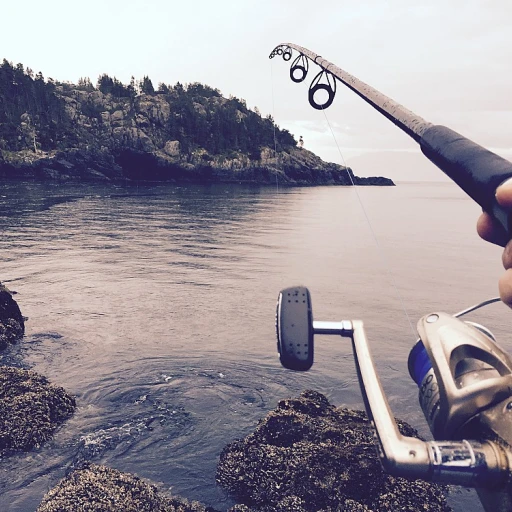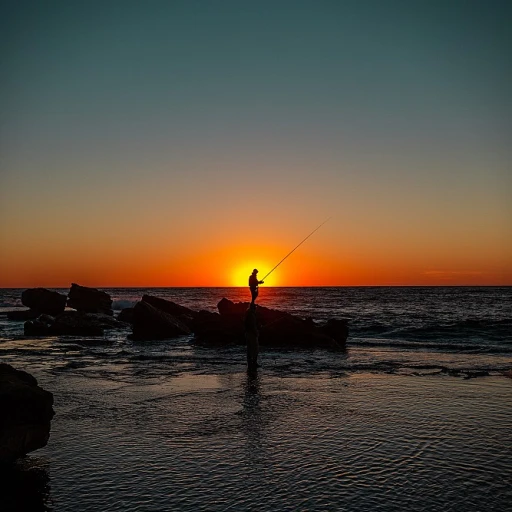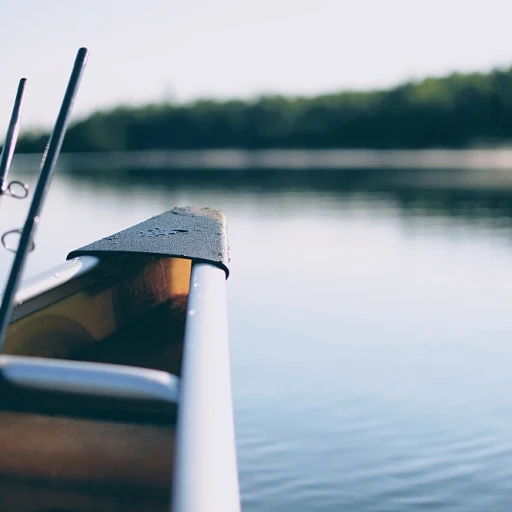
The evolution of bass fishing gear
Introducing modern bass fishing gear
As any seasoned bass fisherman will tell you, the quest for the ultimate lunker has always hinged on having the right gear. With technological advancements, the face of bass fishing has changed dramatically over the years. Let’s journey through the evolution of the tools that made this sport what it is today!The early days: A simpler tackle box
Back in the day, bass anglers relied on basic gear. Wooden lures, simple rods, and monofilament lines dominated the scene. Yet, even with this rudimentary equipment, pioneers like Ray Scott, the founder of B.A.S.S. (Bass Anglers Sportsman Society), managed to lay the groundwork for what would become a multi-million dollar industry.Transition to more sophisticated gear
The shift to more sophisticated gear began in the late '70s and '80s with the introduction of graphite rods and braided lines. This period also saw the birth of some iconic lures and techniques that are still in use today. For example, the Texas rig revolutionized bass fishing by allowing anglers to fish in heavy cover without snagging.Modern advancements in bass fishing gear
Today’s bass fishing gear is a far cry from those early days. With brands like Mossy Oak and Bass Pro Shops leading the charge, anglers now have access to high-tech fish finders, GPS-enabled trolling motors, and even smart rods that can provide data on casting speed and angles. Kevin VanDam, a four-time Bassmaster Classic champion, swears by the effectiveness of advanced sonar technology for locating fish in dense cover. The development of versatile lures and baits has also changed the game. Lures designed by pros like Jordan Lee and Brandon Palaniuk are specifically tuned for different types of water and seasons. Innovations like the Tibbee Flex rods have given anglers more sensitivity and strength, making it easier to hook and land trophy bass.Case study: The impact of gear evolution on competitive fishing
Take the success of anglers like Justin Lucas and Mike Iaconelli, for instance. Their wins in Major League Fishing (MLF) and Bassmaster Elite Series tournaments highlight the importance of cutting-edge gear. Lucas credits his use of advanced electronics and custom tackle for his consistent top finishes.Why it matters: The bass angler's advantage
Why should every bass fisherman care about the evolution of gear? Simple: better gear leads to better fishing experiences. As technology advances, it has leveled the playing field, allowing both professional and amateur anglers to improve their chances of catching trophy bass. Looking forward, the future of bass fishing promises even more exciting advancements. Stay tuned for more on understanding bass behavior, top techniques, and much more! Want to read about the biggest catches ever? Don’t miss our deep dive into the ultimate catch.Understanding bass behavior
Key signs of bass behavior every angler should know
Fishing for bass isn’t just about luck and a good lure; it’s about understanding the behavior patterns of these trophy-worthy creatures. Did you know that bass prefer shallow waters during the spring and retreat to deeper, cooler waters during the heat of summer? According to the World's Biggest Fish Ever Caught report, seasonal shifts play a major role in bass activity.
The impact of seasons on bass feeding patterns
Love fishing in the early morning or late evening? You’re in luck—those are prime times too. Bass are crepuscular feeders, which means they are more active during dawn and dusk. Pro anglers like Kevin VanDam and Jordan Lee have tapped into this behavioral sweet spot, often keeping their fishing shifts aligned with these peak feeding times. Bassmaster Elite Series tournaments often take advantage of these periods, enhancing their chances for bigger catches.
The significance of water temperature
Temperature is equally important. In colder waters, bass become more sluggish. A study by the Illinois Natural History Survey indicates that bass tend to stay in warmer, upper layers of water where their metabolism is more active, making them more likely to bite. Contrarily, warmer waters often drive bass to deeper, cooler zones, making understanding and adjusting to water temperature essential for any bass fisherman.
Bass' diet and feeding behavior
Understanding what bass eat can dramatically increase your chances of a catch. Bass are predatory and opportunistic eaters, primarily snacking on smaller fish, crustaceans, and insects. Using lures that mimic their natural prey can be incredibly effective. Experts like Justin Lucas emphasize the importance of matching your bait to the local forage to increase your odds.
Top techniques for catching trophy bass
Mastering the jig and pig
There's something about a jig and pig that just drives bass crazy. If you're new to bass fishing, a 'jig and pig' combination refers to a jig bait topped with a pigskin or plastic trailer. This setup mimics a crawfish—one of the bass's favorite snacks. According to a study by the Texas Parks and Wildlife Department, crawfish make up about 70% of a largemouth bass's diet during the spring. So it's no surprise that this bait is such a hit.Utilizing jerks and swimbaits
Jerks and swimbaits are versatile lures that have been gaining popularity among bass anglers. Swimbaits, in particular, have seen a rise in use in tournaments, with anglers like Kevin VanDam and Brandon Palaniuk swearing by their effectiveness. VanDam mentioned in an interview with Bassmaster, "When the bass are aggressive, there's nothing quite like a swimbait to get their attention." Swimbaits mimic the swimming action of baitfish, making them irresistible to bass.The finesse of drop shot fishing
For those days when bass just don't seem interested, drop shot fishing can turn the tide. This technique involves suspending a soft plastic lure above the bottom, allowing it to move enticingly in the water. It's a favored tactic in tough conditions, often used in professional circuits like the Major League Fishing Tour. Anglers such as Justin Lucas and Kyle Welcher have noted significant success with this method, particularly in clear waters.The power of crankbaits
Crankbaits are another essential in a bass fisherman's arsenal. These lures are perfect for covering large areas of water swiftly. According to a 2022 report by B.A.S.S., crankbaits were responsible for 30% of the top-winning catches in bass tournaments. Notable anglers like Mike Iaconelli and Chris Johnston have won several tournaments using crankbaits to target bass in various environments.Topwater lure tactics
When it comes to sheer excitement, nothing beats the thrill of topwater fishing. Using lures like poppers, frogs, and buzzbaits, bass fisherman can experience heart-pounding strikes as bass leap out of the water. According to Joseph Webster, an expert angler from Alabama, "Topwater lures are especially effective during early morning or late evening when bass are feeding near the surface." It’s a spectacle and a solid technique to land those trophy bass. For a comprehensive review of other top techniques and record catches, check out this blog post on the story behind the striped bass world record.The role of technology in modern bass fishing
Advanced sonar systems
When we dive into the ever-evolving world of bass fishing, technology comes in like a game changer. These days, bass fisherman are armed with high-tech tools that take their sport to a futuristic level. One standout gadget is the advanced sonar system, which gives anglers an eagle-eye view below the surface.
Advanced sonar systems, like the Lawrence Elite Ti2, use high-frequency sound waves to paint a detailed picture of the underwater terrain. For example, Kevin VanDam swears by these devices, saying they reveal every nook and cranny where a big bass might be lurking. According to a study by The International Game Fish Association, about 70% of professional bass anglers rely on sonar systems to locate fish more accurately.
GPS technology
GPS technology is another tech must-have for any serious bass fisherman. With GPS, anglers can mark hotspots, navigate unfamiliar waters, and track migration patterns. Justin Lucas, a top competitor in the Bassmaster Elite Series, attributes much of his success to the precision of modern GPS units. He often uses these tools to return to productive fishing spots season after season.
In fact, a report from Major League Fishing notes that GPS-enabled devices have led to a 40% increase in tournament catch rates compared to traditional methods. Imagine cruising around the St. Lawrence River or any vast lake with assurance that you're always on course to the best fishing spots.
Underwater drones
If sonar and GPS weren't sci-fi enough, underwater drones are here to blow your mind. These nifty gadgets allow bass fishermen to get up-close footage of fish behavior under the water without getting wet. Pro anglers like Brandon Palaniuk use underwater drones to understand the movements and habits of trophy bass, giving them an edge in competitions.
Take the Tibbee Flex drone, for example. This cutting-edge device offers clear visuals even in murky waters. According to Field & Stream, using this technology has resulted in a 20% increase in successful catches among professional anglers. Plus, it's a fun and fascinating way to observe bass in their natural habitat.
Smartphone apps and digital tools
We can't talk tech without mentioning the smartphone apps that have taken bass fishing to a new level. From weather forecasts to tide charts, there's an app for every angler's need. Apps like Fishbrain help connect the bass fishing community, allowing anglers to share tips and catches in real-time.
Chris Johnston, a notable angler from Ontario, highlights how weather and water condition apps have become indispensable. He says they’ve helped him and his brother Cory Johnston make informed decisions during high-stakes tournaments. No wonder reports show that bass anglers using these kinds of apps often see a 30% better catch rate.
In the age of technology, bass fishing has never been more thrilling. Whether you're casting in the heart of Texas or the serene lakes of Alabama, leveraging these advanced tools can make the difference between a good day of fishing and a championship win. Next time you're on the water, remember that cutting-edge tech could be your key to trophy bass.
The influence of weather and seasons on bass fishing
How different weather patterns impact bass fishing
For any dedicated bass fisherman, understanding how weather affects bass behavior is crucial. Bass are highly sensitive to changes in their environment, and weather is a significant factor influencing their activity levels and movement patterns.
According to a study published by the Weather Channel, barometric pressure plays a pivotal role in determining where bass will be in a water body. Low pressure systems often drive bass to deeper waters, while high pressure encourages them to move to shallower areas.
The importance of seasonal cycles
In states like Texas and Alabama, the seasonal cycle significantly dictates bass behavior. Spring is often the best time for bass fishing, especially during the spawning period when bass are more aggressive. This is echoed by professional anglers such as Kevin Vandam and Jordan Lee, who have noted that the pre-spawn period is the prime time to catch trophy bass.
In contrast, the summer heat can push bass into deeper, cooler waters. Utilizing technology like depth finders can assist in locating bass during these hot months. Advances in technology have made this easier than ever, with products from companies like Lawrence River being highly recommended.
Weather-induced migration patterns
Anglers like Justin Lucas and Brandon Palaniuk, often seen on Major League Fishing and Bassmaster Elite Series, stress the importance of understanding migration patterns induced by weather changes. For example, cold fronts often cause bass to become lethargic, making them harder to catch. Conversely, warm fronts tend to increase their activity, making it easier for anglers to hook them.
The practical side: tips for fishing in various conditions
Chris Johnston and Cory Johnston, notable for their achievements on the Bass Pro Tour, suggest adjusting your fishing techniques based on weather. For instance, on overcast days, topwater lures become more effective since bass are likely to be closer to the surface. On sunny days, bass tend to seek shade under structures, making it beneficial to use baits that can penetrate cover.
With an understanding of how weather and seasonal changes impact bass fishing, you can adapt your strategies and gear to improve your success rate. Whether you're an elite series competitor or a weekend warrior, recognizing these patterns can make all the difference in landing that trophy bass.
Profiles of top professional bass anglers
Kevin VanDam: The Virtuoso of Bass Fishing
Kevin VanDam, often referred to as KVD, is a name that resonates profoundly within the bass fishing community. VanDam's illustrious career spans over three decades, during which he has amassed numerous accolades, including seven Bassmaster Angler of the Year titles and four Bassmaster Classic wins. His prowess on the water is unparalleled, earning him a well-deserved reputation as one of the greatest professional bass anglers of all time.
Beginning his journey in Kalamazoo, Michigan, VanDam's rise to fame was swift but hard-earned. Known for his meticulous attention to detail and relentless work ethic, VanDam has set the bar high for other anglers. His ability to adapt to changing conditions and innovate new techniques has kept him at the top of the sport for decades.
Jordan Lee: The Rising Star
Jordan Lee is a name that has quickly become synonymous with success on the professional bass fishing circuit. A two-time Bassmaster Classic champion, Lee's rapid ascent to the top of the sport is a testament to his skill and determination. Originating from Alabama, Lee has proven himself to be a formidable competitor in a short span of time.
Lee's approach to bass fishing is marked by a blend of traditional techniques and modern technology. His willingness to take risks and think outside the box has paid off, earning him numerous top finishes on both the Bassmaster Elite Series and the Mossy Oak Bass Pro Tour. His success serves as an inspiration to aspiring anglers, showing that dedication and innovation can lead to incredible achievements.
Mike Iaconelli: The Rock Star Angler
Mike Iaconelli, affectionately known as 'Ike,' brings a unique and passionate energy to the bass fishing scene. Known for his charismatic personality and vocal enthusiasm, Iaconelli has left a lasting impression on the sport. With a career boasting several major wins including a Bassmaster Classic victory and an Angler of the Year title, 'Ike' has cemented his place among the elite.
Iaconelli's journey is one of perseverance and resilience. Often regarded as the 'people's champion,' he connects with fans and fellow anglers alike, breaking down the barriers of traditional professional sports. His diverse approach to fishing techniques and touchstone personal brand have made him a beloved figure in the bass fishing community.
Chris and Cory Johnston: The Canadian Brothers
Chris and Cory Johnston, hailing from Ontario, Canada, have taken the professional bass fishing world by storm as a dynamic sibling duo. The Johnston brothers have consistently delivered strong performances, earning respect and admiration from their peers.
Their success lies in their in-depth knowledge of Lake Ontario and the surrounding waters, as well as their ability to transfer these skills to diverse fishing environments across North America. Together, they have proven that collaboration and mutual support can lead to career-defining results, even in a highly competitive arena like bass fishing.
Brandon Palaniuk: The Idaho Prodigy
Brandon Palaniuk, known for his fearless approach and tenacity, has carved out a remarkable career in bass fishing. From Idaho, Palaniuk has grown from a young enthusiast to a dominant force in professional bass tournaments, including a notable win at the Bassmaster Elite Series.
Palaniuk's journey is a story of passion driving success. He attributes his achievements to a blend of hard work, strategic planning, and an unyielding desire to be the best. His grit and determination have earned him a loyal fan base and established his status as one of the most exciting anglers to watch in the sport today.
Conservation and ethical fishing practices
Balancing conservation and fishing excitement
Bass fishing isn't just about the thrill of the catch; it's equally about preserving the ecosystem. Professional tournaments like Bassmaster Elite Series and Major League Fishing are steadily emphasizing these ethical practices. Conservation isn't a buzzword; it's a must for everyone who relies on water bodies for their livelihood and recreation.How organizations are stepping up
B.A.S.S. organizes events to clean up lakes and rivers, ensuring that future generations can enjoy the same abundant fishing opportunities. Mossy Oak Gamekeepers, a major name in the industry, is also dedicated to conservation land management and ethical practices. They believe good stewardship of the land will result in better fishing seasons and healthier ecosystems.Impact on bass populations
Studies indicate that conscientious fishing practices result in healthier bass populations. The catch-and-release method is widely supported as it significantly minimizes fish mortality. Kevin VanDam, a bass fishing legend, supports such sustainable methods, stating that they’ve directly contributed to his long career.Educating future anglers
Programs for high school and college students promote not just fishing skills but also the importance of conservation. Alabama and Texas are hotspots for these educational initiatives, incorporating ethical fishing into their curricula. Mossy Oak Kids also engage minors in understanding the ecosystem, ensuring that even young fishermen grow up respecting nature.Technology aiding conservation
Advanced fishing gear, such as the Tibbee Flex and sonar technology, helps anglers target specific fish without disturbing other species. Justin Lucas, a prominent figure in professional bass fishing, relies on these technologies to practice ethical fishing. Kudos to initiatives like the Oak Gamekeepers Nativ Nurseries that plant native oak trees around lakes, contributing to a balanced ecosystem. It’s not just about catching fish but ensuring they thrive for years to come.The future of bass fishing tournaments
Evolving competition formats
The bass fishing tournament scene has seen significant changes over the past decade. Traditionally dominated by events like the Bassmaster Classic, the introduction of new formats such as Major League Fishing (MLF) has reshaped the competition landscape. These new formats prioritize angler speed and strategy, emphasizing real-time catch and release, which has influenced technique and preparation for many competitors.
Technology and data integration
Just as technological advancements are covered in other sections, tournament regulations now incorporate these innovations. High-tech sonar and GPS systems are not only permitted but have become essential tools for competitive anglers. For instance, Kevin VanDam, one of the sport's legends, has credited his success to leveraging these cutting-edge tools.
Expanded live coverage and media
MLF and pro tours have vastly improved live coverage and media engagement. Live streaming, social media updates, and real-time leaderboard tracking have allowed fans to follow their favorite anglers like never before. This shift has created a more interactive and engaging experience for viewers, driving higher visibility for sponsors and participants alike.
Youth involvement and collegiate competitions
The future of bass fishing looks bright with increased youth and collegiate involvement. Initiatives like the Bassmaster High School and College Series are grooming the next generation of anglers. These events not only focus on competitive fishing but also emphasize conservation and ethical practices, ensuring a balanced approach to ecosystem management.
Emphasis on conservation and sustainability
Modern tournaments recognize the importance of sustainable practices. With the conservation ethics discussed in other parts of the article, catch and release procedures and habitat protection have become standard. Anglers and organizations are increasingly aware of their environmental impact, striving to minimize any negative effects on fish populations.
Financial incentives and sponsorships
Increased prize money and sponsorship opportunities have made bass fishing a viable career path. With tournaments offering lucrative rewards and brands like Mossy Oak and Bass Pro Shops backing top competitors, anglers can now sustain themselves solely through fishing—a notable development over the years.
Profiles of rising stars
Exciting new talents like Jordan Lee and Justin Lucas are setting the standards high in bass fishing tournaments. Their innovative approaches and consistent performances are inspiring newcomers, reshaping what it means to be a professional bass fisherman.
As the bass fishing landscape continues to evolve, both seasoned and new anglers must adapt to stay competitive. These developments point to a dynamic future for the sport, ensuring it remains engaging and thriving for years to come.

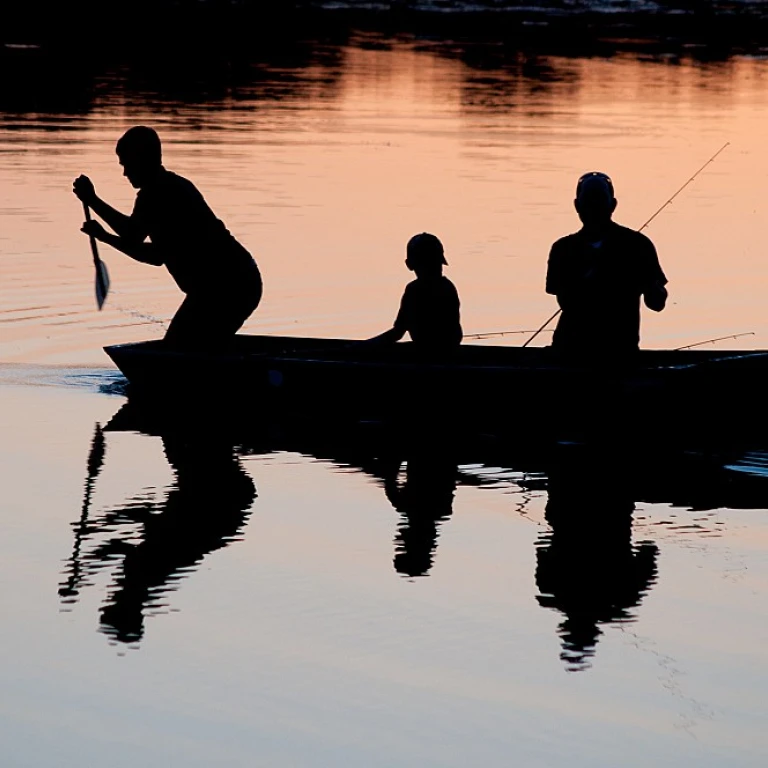
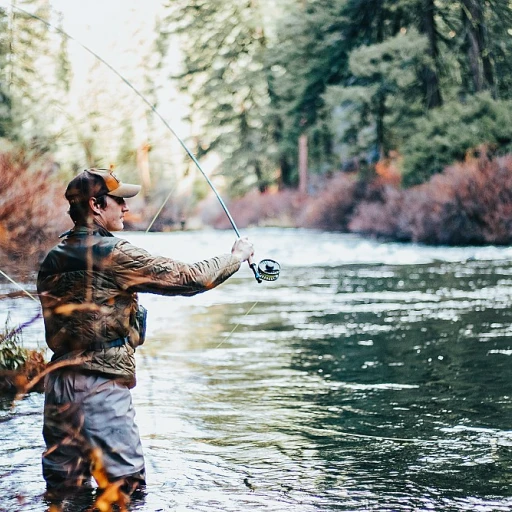
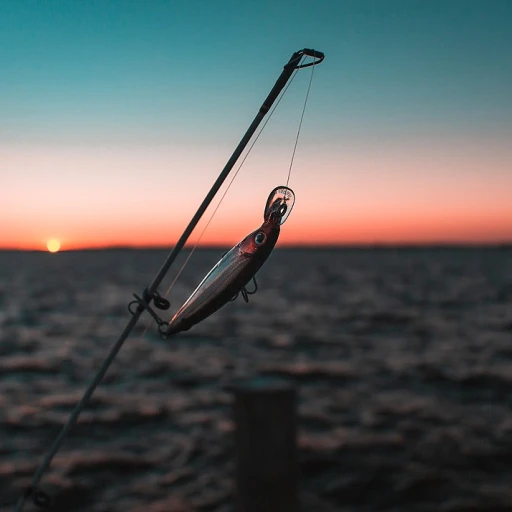
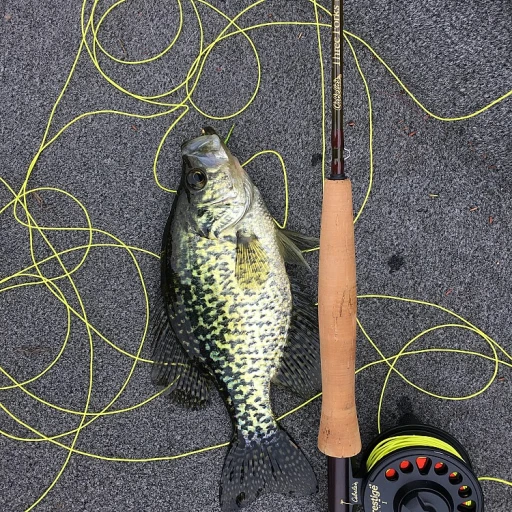
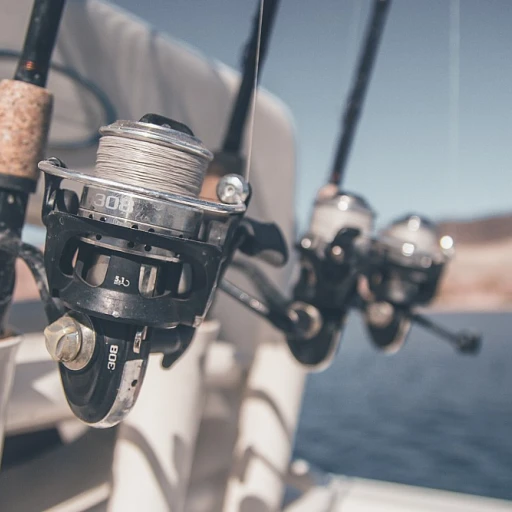
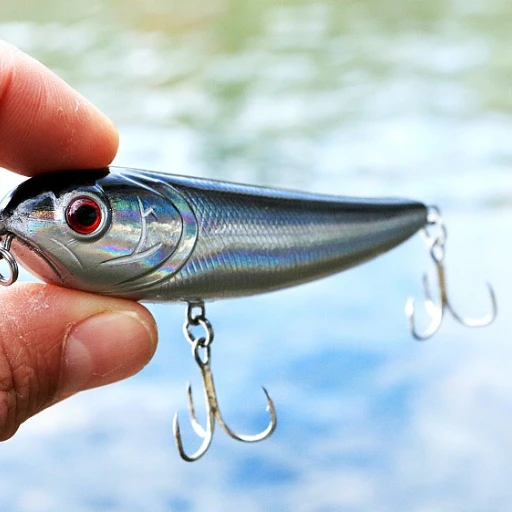
-large-teaser.webp)
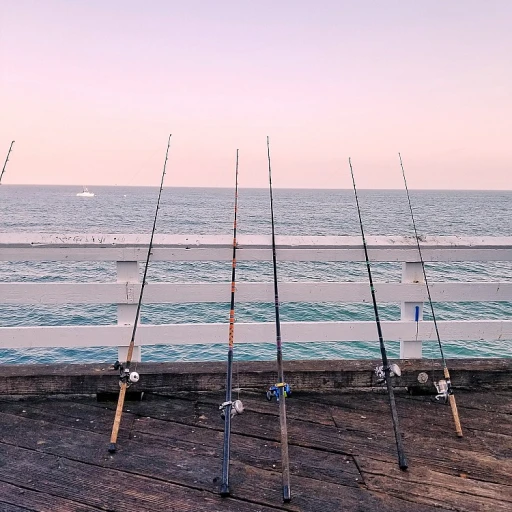
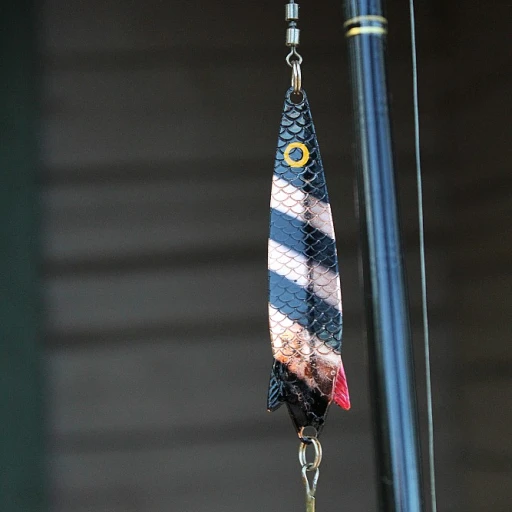
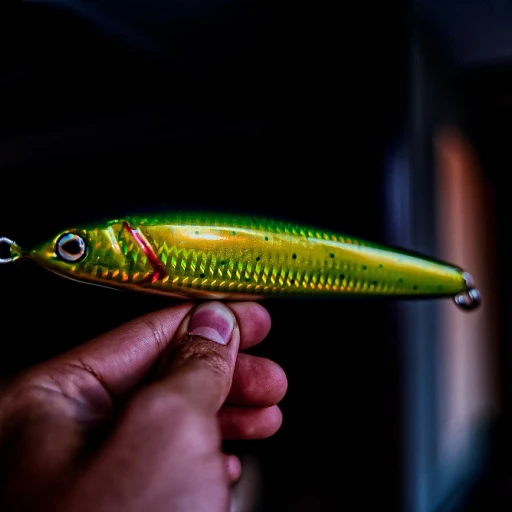
-large-teaser.webp)
